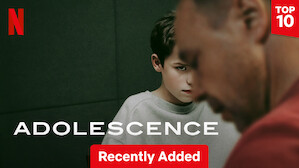How Netflix’s ‘Adolescence’ is Changing Education: UK Schools Adopt Anti-Misogyny Curriculum
Introduction
Netflix’s controversial drama “Adolescence” has sparked more than just watercooler conversations—it’s now driving real-world change in UK schools. Following the show’s explosive portrayal of teenage relationships, misogyny, and social media influence, educators are implementing mandatory anti-misogyny lessons to combat harmful stereotypes.
This groundbreaking shift raises important questions:
✔ How is a Netflix series influencing school policies?
✔ What does the new curriculum include?
✔ Could this model spread globally?
In this deep dive, we explore the impact of “Adolescence” on education, why UK officials acted so quickly, and what parents and teens should know about these changes.
Why “Adolescence” Forced Schools to Rethink Misogyny
The Netflix series “Adolescence”—a raw, unfiltered look at modern teen life—has been praised for its realism but criticized for glamorizing toxic behavior. Key plotlines include:
- Online harassment and revenge porn
- Pressure to conform to gender stereotypes
- Normalization of manipulative relationships
After reports of rising misogynistic incidents in schools, UK policymakers fast-tracked an updated Relationships and Sex Education (RSE) curriculum—directly citing the show’s influence.
Key Changes in the New Anti-Misogyny Curriculum
- Mandatory Lessons on Digital Consent
- Discussing leaked images, cyberbullying, and legal consequences
- Teaching how to report online abuse
- Debunking “Alpha Male” Stereotypes
- Challenging Andrew Tate-esque ideologies
- Promoting healthy masculinity
- Real-World Consequences of Misogyny
- Case studies on how sexist behavior leads to workplace discrimination, violence, and legal trouble
- Media Literacy: Separating Fiction from Reality
- Analyzing how shows like “Adolescence” dramatize (but don’t endorse) toxic behavior
The Backlash: Is This Overreach?

While many parents and educators applaud the changes, critics argue:
❌ “Schools shouldn’t base policy on a TV show.”
❌ “This is ideological indoctrination, not education.”
❌ “Will teens take these lessons seriously?”
Proponents counter:
✔ “If pop culture shapes attitudes, schools must respond.”
✔ “We teach kids about smoking dangers—why not digital abuse?”
Could This Spread Beyond the UK?
The UK isn’t alone in grappling with teen misogyny. Countries like Australia, Canada, and the U.S. are watching closely, with activists pushing for similar reforms.
Signs it’s gaining traction:
- U.S. school districts piloting media literacy programs tied to shows like “Euphoria” and “Adolescence”
- France recently mandated gender equality classes
- Netflix itself funding educational initiatives on digital safety
What Parents & Teens Should Do Now
- Watch (and Discuss) the Show Together
- Use “Adolescence” as a conversation starter about respect, consent, and online behavior.
- Learn About the New Curriculum
- UK parents can review the updated RSE guidelines [here].

- Advocate for Similar Reforms Locally
- Contact school boards to ask: “Are we addressing modern misogyny?”
- Use Free Resources
- Organizations like Beyond Equality (UK) and The Trevor Project (US) offer anti-misogyny toolkits.
Final Takeaway: A Pop Culture Wake-Up Call
“Adolescence” proves that entertainment doesn’t exist in a vacuum—it shapes attitudes, and now, education systems. While the UK’s response is unprecedented, it may mark the start of a global shift in how schools tackle misogyny.
The big question: Will your child’s school be next?
💬 Do you think schools should update curriculums based on TV shows? Share your thoughts below!
🔗 Follow for more on pop culture’s impact on education and teen mental health.





